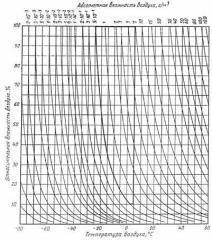Search results
Topic #iot
-
A vision that is being implemented by many in the world is an extensive range of everyday objects connected and communicating cheaply with each other across a global network - "the Internet of Things." The electronic devices in our world generate enormous amounts of data and thanks to the Internet the possibilities for interaction between devices is almost endless. These devices can be data sources (sensors), end user devices (displays, databases), and even a data source and sink (an actuator, smart phone). The Internet, What is it? How has it developed? Where is it? Who is using it? What can it do? How reliable is it? What’s driving it? These questions will be answered leading to an insight into what is and will likely be possible. Some of the details for implementing Internet TCP/IP end point connections, with comparisons to more traditional methods will be looked at and related to examples for weather monitoring systems and sensors. Using the Internet for weather monitoring raises new issues and there are remaining implementation limitations. Internet communications are scalable and can be used to connect to everything in a weather monitoring network, from a single sensor to a display, to a complete global data network. This not only applies to data connectivity, but also to the network management and maintenance of systems. If it is possible to connect to everything: Do we want to see every measurement? - information overload, smarter presentation tools. Does the quality matter? - quality control algorithms, notifications, data filing. How do we handle the enormous volumes of data? - use and delete or save and backup. Is the information copyright? - legal agreements. And to finish - The skies the limit, or is it?
-
IBM’s latest foray into the Internet of Things (IoT) is substantial, but still not as large as some of its competitors. The firm says it plan to invest $3 billion over the next four years to establish a new IoT unit — and, it is building a cloud-based open platform to help industries integrate real-time data (and insights from it) from dispersed sources directly into business operations
-
http://understoryweather.com/industrial-iot-for-insurance/
-
http://www.instructables.com/id/Connecting-a-weather-station-to-the-Internet-of-Th/
-
Bruce Sinclair interviews Brendan Hayes, API Manager for Online Weather Distribution at the Weather Company
-
A vision that is being implemented by many in the world is an extensive range of everyday objects connected and communicating cheaply with each other across a global network - "the Internet of Things." The electronic devices in our world generate enormous amounts of data and thanks to the Internet the possibilities for interaction between devices is almost endless. These devices can be data sources (sensors), end user devices (displays, databases), and even a data source and sink (an actuator, smart phone).
-
For the average smartphone owner, weather apps are extremely useful. At your fingertips, you have the temperature, hourly predictions, and a radar screen that can be minimized or maximized at your convenience.
-
The ultimate in IoT seems to be the ability to monitor the weather, and integrate those data points into core business process. This is nothing new. I’ve often told the story about weather data driving manufacturing planning around demand for the product, to staff showing up for work, to the correct mixing of specific chemicals.
-
-
-
В последнее время на Хабре появилась масса постов про построение мониторов качества воздуха. При этом ни одной попытки управления качеством воздуха не нашел, а ведь как только мы переходим от пассивного наблюдения к активному управлению — возникает масса интересных проблем и решений. Своими скромными наработками в этой области и хочу поделиться.
-
http://ceur-ws.org/Vol-1383/paper13.pdf
-
Personal Vehicle Weather Station: crowd-sourced road weather
Brian Bell Exelis, Inc. Geospatial System- Environmental Intelligence Boulder, Colorado
The presentation will describe Exelis' approach and current state of an effort to produce a Personal Vehicle Weather Station (PVWS), as a reliable, low cost, smart sensor that is installed on vehicles to help fill weather observation gaps along transportation corridors and near critical infrastructure. -
Публичный аналитический доклад


